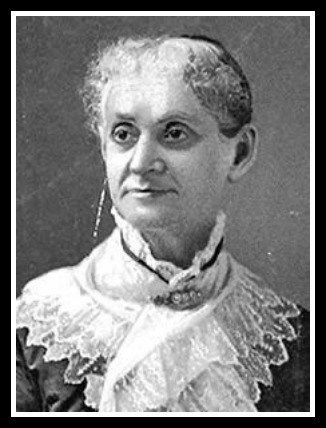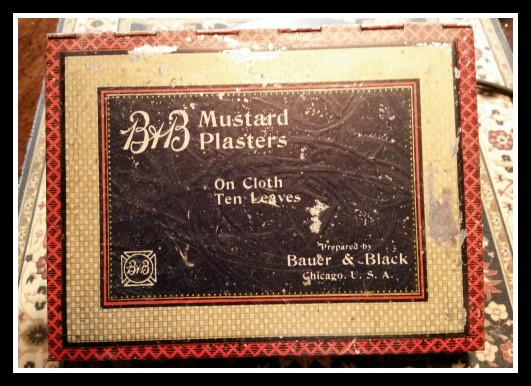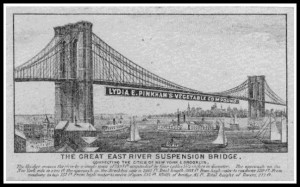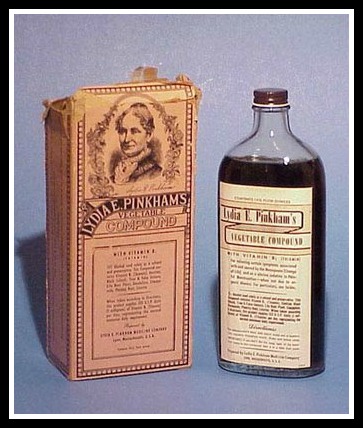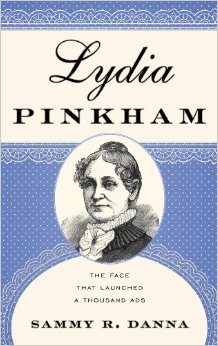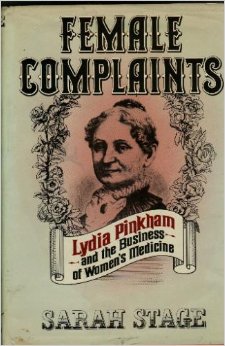Women who need to be remembered often have Lemon to Lemonade lives and Lydia Pinkham is no exception. The going got tough and she turned some herbs (and a wee bit of alcohol) into not only an empire but a leaping advance in women’s health and education.
Lydia Estes was born in Lynn, Massachusetts in 1819 into a family led by gentleman farmer, William, his wife, Rebecca and many brothers and sisters. Papa was a wise real estate speculator and they were fairly well-off. But this wasn’t some quiet, subdued Quaker family, oh no! They split with the local Quaker Meeting over the subject of slavery, the Estes family siding with good friend, former slave and abolitionist Fredrick Douglass. They opened their home for many abolitionist gatherings where the children and women were not only seen but heard.
Lydia grew to be a politically active and educated teacher who attracted the eye of widow Isaac Pinkham. On paper Isaac looked an awful lot like her father as far as business sense goes, but it was all paper. 30 years, four children, several upward then downward home moves when the Panic of 1873 hit family finances hard. Isaac was emotionally down for the count and the family was fiscally ruined.
Lydia hadn’t spent the past years simply raising a family, decorating and un-decorating their homes, she was active in abolition and the women’s rights movement and had turned her interest in all things medical into a lot of practical experience as a midwife. She had and a whole 1800s medicine cabinet full of home brewed medications which she shared with neighbors and friends free of charge. One of her remedies, a tonic for women’s ailments, was particularly popular and women traveled miles to get some from Lydia.
As always, we go into a lot more detail on her life, her family, her interests, the level of health care women were (not) given and 1800s medicine in general (oh, we looove some of those treatments) during the podcast. Let’s just say the market was pretty wide open for a person with a medicinal concoction and a place to manufacture it. The family decided that the best route to keeping their heads above water was Lydia’s medicines. Her background in home health and caring for women as well as her attention to cleanliness set her potion apart from all the rest. She began brewing and bottling in her house and wrote educational pamphlets to accompany each bottle of her Vegetable Compound.
Her sons aggressively and creatively marketed the medicines first locally and then regionally. Through trade cards, newspaper ads and a number of unregulated sales techniques word spread about Lydia Pinkham’s Vegetable Compound. A revolutionary strategy of putting Lydia’s grandmotherly image on the label and marketing it to women was very successful. Females from adolescence through menopause were downing the bitter liquid that packed quite an alcohol punch and writing Lydia for advice which she freely gave. Or, rather, the women who worked for her freely gave under her guidance and signature.
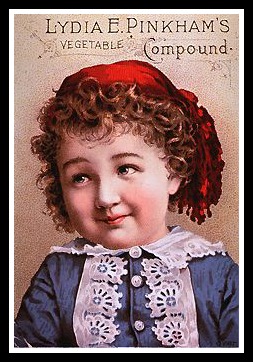
The hook portion of a trade card. We explain this creative (and collectible) marketing item in the podcast.
When her two eldest, and most active in the business, sons died within months of each other the world-wide business didn’t collapse. Another son took over while Lydia wrote a couple books that gave valuable and previously unavailable information to women about their own bodies. “The women of this country,” she said, “must have a physical education if we are to have a people strong and healthy.”
Lydia died in 1883 at the age of 64 after a lifetime as a champion of women’s health and education in era when women had little voice, little protection and a lot of misinformation. Her reformulated compound is still available and looks a lot like it did in Lydia’s lifetime.
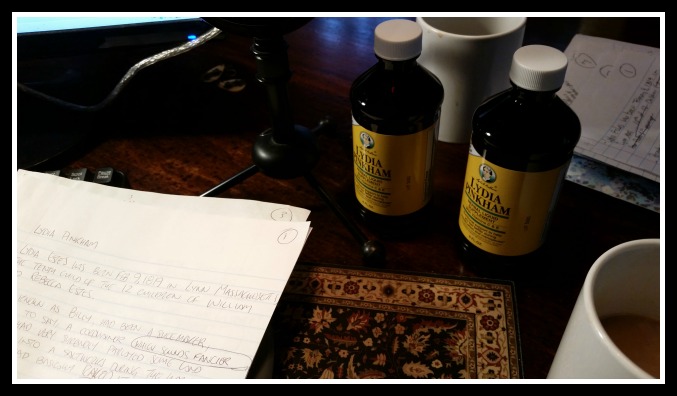
Bottle now (which we took swigs of during the podcast. If you aren’t listening, you’re missing out on some great stuff.)
In addition to starting a fact-based and life-saving conversation about women’s health, becoming the most successful woman-owned business of her time and creating a tonic that is still being used to this day, Lydia’s legacy lives on in pubs…Liddy the Pink!
(Traditional Ballad of Lydia Pinkham…the slightly bawdy version):
TIME TRAVEL WITH THE HISTORY CHICKS
Lovely links for Lydia:
For a history of Patent Medicines (including many trade cards) visit the Pilgrim Hall Museum, and Balm of America:Patent Medicine Collection at Smithsonian’s online museum.
It’s always a good day when we can send you to the online Museum of Menstruation!
From the woman herself! Project Gutenburg: Treatise on the Diseases of Women by Lydia Estes Pinkham
Radcliffe Institute for Advance Study (Harvard University) has the motherload of Lydia resources: Lydia Pinkham Motherload (paraphrased)
Books we liked:
!
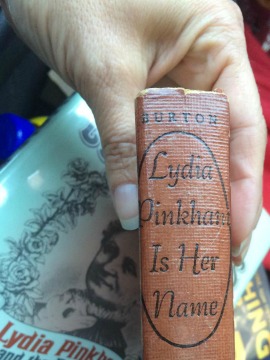
Lydia Pinkham is Her Name by Gene Burton (also available on Project Gutenberg and this actual book from the Kansas City Public Library is the one they digitized.
If you listened you might want to see this.

